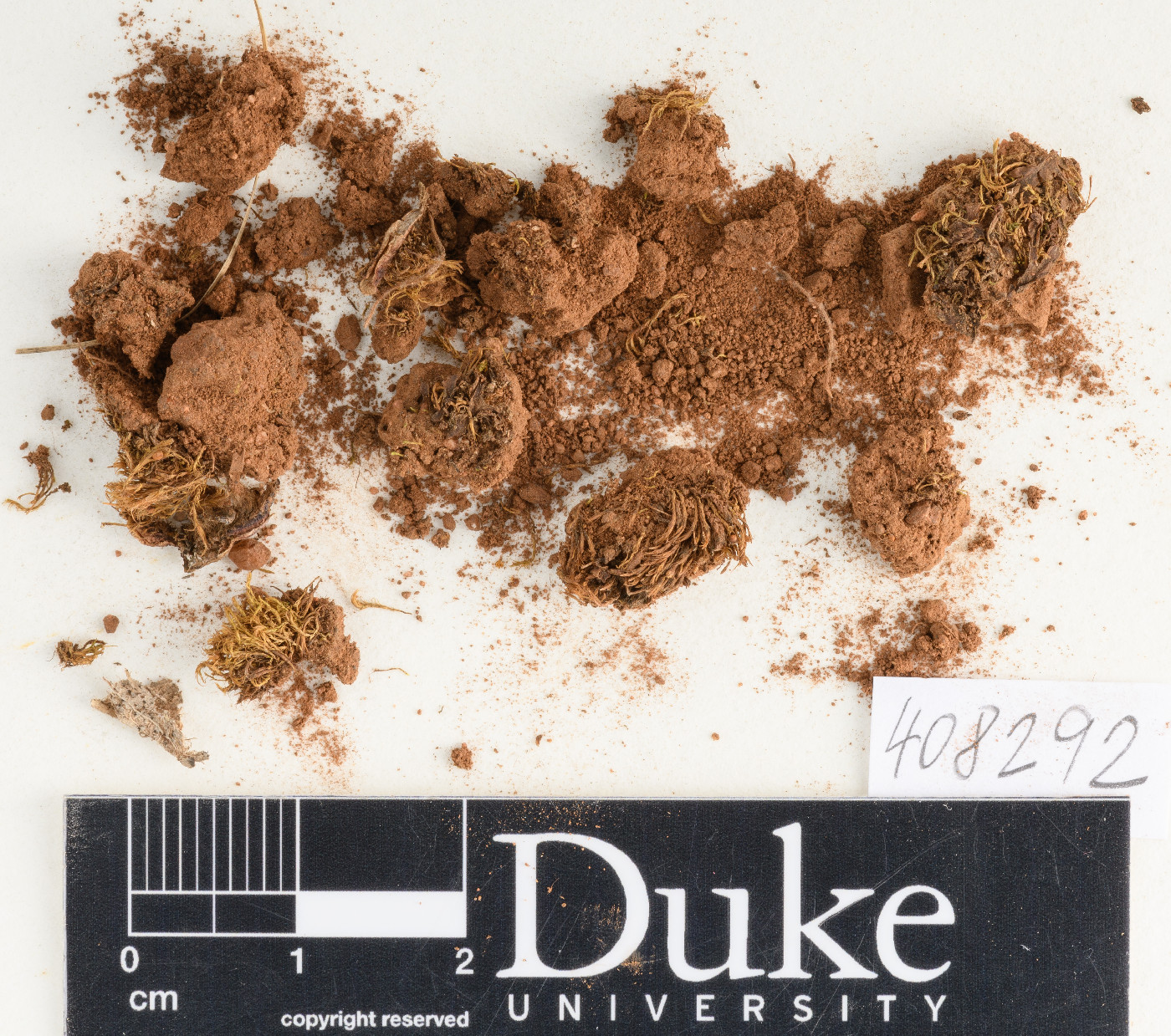
Consortium of Bryophyte Herbaria
- building a Consortium of Bryophytes and Lichens as keystones of cryptobiotic communities -
|
Family: Bruchiaceae |
Leaves: not contorted when dry, lanceolate to linear-lanceolate from a somewhat broadened ovate or oblong base, 1–2 mm, apex acute to acuminate, margins entire or serrulate; costa subpercurrect to shortly excurrent; distal laminal cells short- to long-rectangular. Perichaetial: leaves little different from cauline to distinctly larger and somewhat sheathing. Seta: short, 0.3–0.4 mm. Capsule: immersed to short-exserted, pyriform or obovate, neck weakly to strongly inflated, obovate, tapering, or short-cylindric; peristome and operculum not differentiated. Calyptra: mitrate. Spores: rather large, 25–45 µm, papillose, spinose, reticulate, or pitted. Worldwide, mainly in the temperate zones. Species 17 (10 in the flora). The taxonomic concept for Bruchia follows that of A. E. Rushing (1986). The large percentage of species that are endemic to the flora area may indicate an overly narrow species concept for the genus held by past monographers. The protonema of some species appears persistent. Bruchia bolanderi and B. vogesiaca approach Trematodon in size and appearance of sporophyte but the capsules are cleistocarpic. |
Powered by Symbiota.





